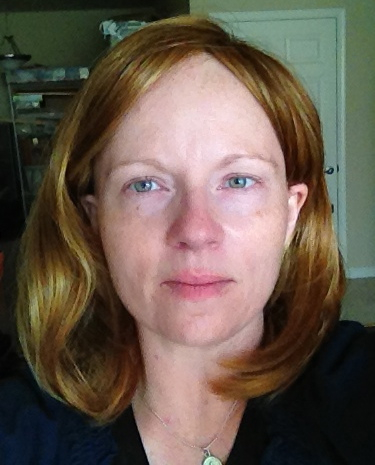
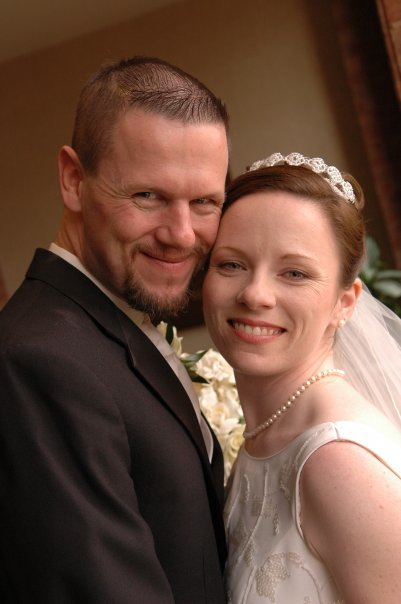
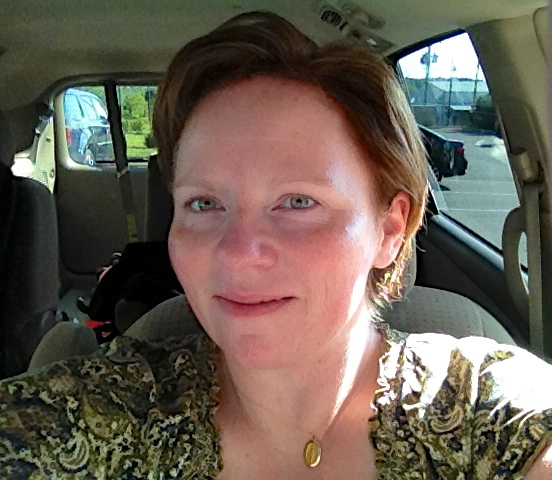
"My hair is short, but I am grateful to have it. I am worn and weary… but more importantly… I am a survivor," she says. (Courtesy Julie Radzville)
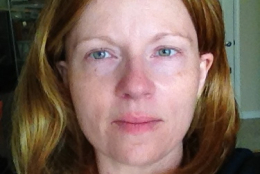
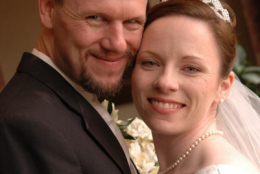
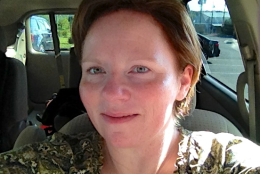
WASHINGTON — Julie Radzville had a full life — four kids, a loving husband and a home in Warrenton, Virginia. And then, the pain took over.
“I was writhing in pain on the floor, I could not do anything, I could not move,” she remembers.
At first, her doctor thought it might be endometriosis — an inflammation of the uterine lining that is fairly common. But the pain just keep getting worse, and after months of wondering why, Radzville went to the hospital. It was there, in the spring of 2013, that she learned she had stage four ovarian cancer.
“I was devastated,” she says softly.
She knew she was up against a killer.
Ovarian cancer is not as common as breast cancer, but it is far more lethal.
“About 22,000 women a year will be diagnosed with ovarian cancer and a little over 14,000 women a year will lose their battle,” says Dr. Larry Maxwell, chairman of the Department of Obstetrics and Gynecology at Inova Fairfax Hospital.
That’s largely because it is often caught late, after the cancer has become metastatic — meaning it has started to spread to other parts of the body.
Unlike cervical cancer where a routine pap smear can provide an early warning, there is no test to catch ovarian cancer when it is most treatable, although genetic screening can help predict risk.
Compounding the problem is the fact the symptoms of ovarian cancer are also signs of other, more common, diseases. The Centers for Disease Control and Prevention says those symptoms can include bloating, abnormal vaginal bleeding or discharge, pelvic pain, and changes in bathroom habits.
“It’s a challenge that we have,” says Maxwell. “Most of the symptoms related to ovarian cancer are non-specific.”
He says it is essential for women to educate themselves, and act on any derivations from the norm.
Radzville, well into her own battle against ovarian cancer at the age of 40, says it is a lifesaving lesson that every woman needs to learn.
“I want women who are in the same mindset as me, who think they don’t have time to take care of themselves, to listen to their bodies,” she says.
She has become an advocate for women with the disease, urging them to seek out others fighting the same fight.
“Don’t just read the statistics — find support,” she says. “We are out there and we want to support you, we want to help you through this.”
Maxwell, who lost his own grandmother to ovarian cancer, is also speaking out in a big way. He founded — what he calls — a “movement” in 2013 to raise awareness of women’s cancers both here and around the world.
Now in its second year, the international Globeathon to End Women’s Cancers brings together medical personnel and cancer patients from roughly 80 countries — all linked by social media. This weekend, there will be a full schedule of Globeathon events in the D.C. area, culminating with music, dance and information sharing Sunday at Freedom Plaza in D.C.
All this comes as National Ovarian Cancer Month moves into high gear, and women like Radzville don their teal ribbons — a symbol of ovarian cancer awareness
Maxwell says this weekend’s events are designed in large part to “celebrate the survivorship of women who are diagnosed with gynecologic cancers”
Radzville says she knows the prognosis for patients like her who were detected late is not good, but she remains hopeful.
“There are survivors out there, but it is like hitting the lottery. And I hope I hit the lottery and make it a bit longer.”
Follow @WTOP and @WTOPliving on Twitter and WTOP on Facebook.







